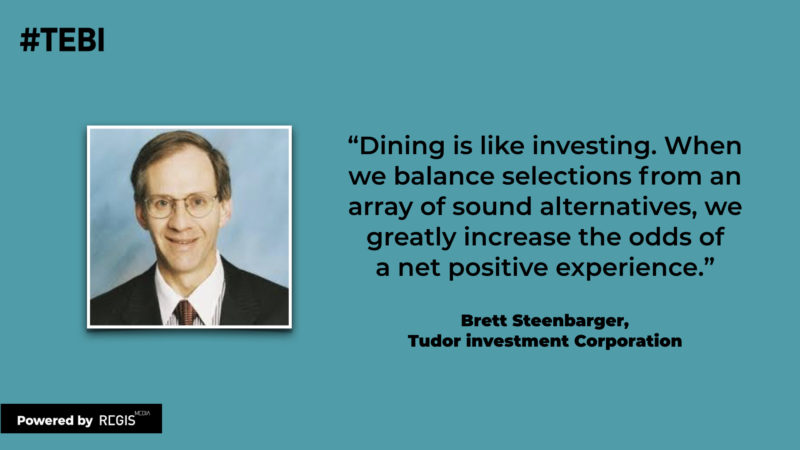
My son is due to enrol at Stockholm Business School next year, and one of the things I’m looking forward to when I visit is sampling the Swedish lifestyle. Buffet.
Take the smörgåsbord, for instance. For those, like me, who spend at least 15 minutes perusing a restaurant menu, the option of having a little bit of everything is very appealing.
Brett Steenbarger invokes the smörgåsbord analogy in a brilliant new post on Forbes. His argument, in a nutshell, is that diversification is hugely underrated — and not just in investing.
The investment benefits are well known. Most investors, Steenbarger explains, “concentrate their bets on what’s been hot, which all too often becomes cold”. If you invest instead for the long term in a variety of assets and, apart from occasionally rebalancing your portfolio, do nothing else, you’re giving yourself the best chance of success.
“This is how dining is like investing,” explains Steenbarger. “When we balance selections from an array of sound alternatives, we greatly increase the odds of a net positive experience.”
Wider benefits of diversification
In fact as a psychologist, he goes on, he is “regularly impressed by the degree to which this insight is lacking in people’s life perspectives. When we consider our various roles in life — our work life, personal life, relationship life, family life — it’s clear that our total happiness and fulfilment can come from multiple sources.”
By focusing all of our energies on one of those areas — work, for example — at the expense of the others, we risk a life that lacks balance, with all the physical, mental and emotional issues that entails. So not only is diversification underrated; the benefits of focus and concentration can be overrated.
Returning to an investment context, we often read in the media about financial commentators and professional investors with conviction. Indeed, the more trenchant and extreme their opinions, the more column inches or air time they tend to be afforded.
We admire people of conviction
We also tend to admire people of conviction, as fund industry marketers know well. That’s why adverts for active managers often laud their single-minded approach, their willingness to stand out from the crowd.
But there’s a tension here. On the one hand, it’s good for an active manager to have conviction. That’s the only way, after all, that they’re going to have any chance of outperforming the market net of costs. By contrast, paying active management fees for a fund that more or less hugs an index, is a surefire way of being ripped off.
The downsides of conviction
On the hand, though, conviction comes at a cost, as Morningstar’s Alex Bryan demonstrates in a new study, A Look into the Potential risks and Rewards of Portfolio Concentration.
Increasing concentration, he shows, also increases the risk of missing out on some of the market’s big winners, which have historically driven a disproportionate share of its returns. Add to the fact that concentrated managers tend to charge more, plus the added risk that investing with high-conviction managers entails, and the benefits of greater concentration are effectively wiped out.
In short, Bryan found no evidence that higher concentration leads to better performance. It is, he says, a myth. Indeed, “increasing portfolio concentration is just as likely to hurt returns as it is to help.”
Bryan’s findings add to a large body of evidence showing that high conviction is no panacea for the ills of active management. Research published by S&P Dow Jones Indices in November 2018, for example, showed that the move towards more concentrated portfolios that many are predicting will have four likely consequences. None of them will benefit active managers or their investors:
— volatility will probably increase;
— manager skill will be harder to identify;
— trading costs will rise; and
— the probability of underperformance will increase.
Conclusion
The truth is that, by the law of averages, there will always be a high-conviction manager who looks like a genius, someone who did just the right thing at the right time. These are the managers you’ll see being interviewed on CNBC and you’ll read about in your Sunday newspaper.
Was it down to luck, skill or an element of both? It’s almost impossible to tell. Whatever it was, those managers are far, far outnumbered by high-conviction managers who flopped, and the chances of them repeating their stellar performance in the future are slim.
So don’t be fooled by conviction. Far better to save a fortune and feast on the investing equivalent of a smörgåsbord, a globally diversified index fund, instead.








